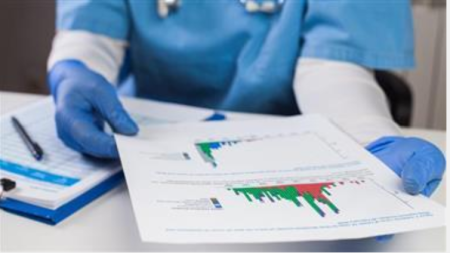by Dr. Joseph Mercola, public domain

(Feb. 1, 2022) — While other Big Pharma manufacturers have developed and released a COVID-19 genetic therapy injection, only shots from Pfizer, Moderna and Johnson & Johnson have been approved in the U.S.1
The British Medical Journal (BMJ) editor Peter Doshi, an associate professor of pharmaceutical health services research at the University of Maryland School of Pharmacy, has called for the release of the clinical trial raw data on which the emergency use authorizations were based.2
As of December 2021, there were 12 countries with the capacity to produce the shots being distributed throughout the world, with approximately 200 vaccine candidates that are in preclinical development.3 According to OpenVAERS,4 there have been 1,053,828 adverse events reported as of January 14, 2022, and of those 593,078 (56.2%) are attributed to the Pfizer/BioNTech shot.
Of the three emergency use authorization approved shots in the U.S., Pfizer’s Comirnaty was the only one approved for full use by the FDA in August 2021.5 The thing is, Comirnaty is not available in the U.S., and won’t be made available as long as doses of the Emergency Use Authorized Pfizer shot, BNT162b2, remain.6
In other words, the shot that has triggered more than half of all adverse events is the one that is being touted as approved by the FDA — when in reality the shot that was actually approved isn’t even available yet. Dr. Peter Marks, FDA’s director of the Center for Biologics Evaluation and Research wrote this as justification for the approval to do this in the FDA press release:7
“Our scientific and medical experts conducted an incredibly thorough and thoughtful evaluation of this vaccine. We evaluated scientific data and information included in hundreds of thousands of pages, conducted our own analyses of Comirnaty’s safety and effectiveness, and performed a detailed assessment of the manufacturing processes, including inspections of the manufacturing facilities.”
It is the FDA’s statutory obligation8 to publish this “incredibly thorough” evaluation of the data and their own analysis within 30 days of a drug approval. Yet, after a Freedom of Information Act request and subsequent lawsuit by a nonprofit group to release the data,9 the FDA proposed to release documentation over many decades.
Ultimately, they asked a federal judge to give them 75 years to complete the process,10 but in January 2022 a federal judge ordered the FDA to accelerate this schedule to eight months.11
Pfizer Won’t Accept Requests for Trial Data Until 2025
According to Doshi,12 it will take Pfizer at least 24 months after the study completion date listed on ClinicalTrials.gov13 to even consider a request to release the primary data. Doshi calls this an “unacceptable delay,” and yet the lack of access to data is not unique to Pfizer.
Moderna and AstraZeneca14 have both indicated they will have similar delays in releasing their data.15 Since only the data from Pfizer can be released by the FDA, it falls to Moderna, Johnson & Johnson and AstraZeneca to provide the raw data. Doshi points out that raw data for other therapeutics tied to COVID-19 are also difficult to uncover.
For example, the published reports of the monoclonal antibody therapy produced by Regeneron state that any raw data will not be released to others.16 Only the methods and findings will be released, and the raw data will only be considered once the drug has been approved and if there’s legal authority to share it.
Likewise, Doshi notes the raw data from the National Institutes of Health for the drug promoted to treat COVID-19 — remdesivir — is limited, with the accompanying explanation: “The longitudinal data set only contains a small subset of the protocol and statistical analysis plan objectives.”17 Doshi argues the point, writing:
“We are left with publications but no access to the underlying data on reasonable request. This is worrying for trial participants, researchers, clinicians, journal editors, policy makers, and the public. The journals that have published these primary studies may argue that they faced an awkward dilemma, caught between making the summary findings available quickly and upholding the best ethical values that support timely access to underlying data.
In our view, there is no dilemma; the anonymized individual participant data from clinical trials must be made available for independent scrutiny.”
Access to the underlying data is necessary for transparent decision-making. Each of these are essential steps for public health safety. Doshi notes18 that had information been revealed as to why the vaccine trials were not used to test efficacy against the infection, countries would have learned earlier about how the vaccine allowed transmission in the pandemic and would have been able to plan public health strategies accordingly.
Pfizer has been a habitual offender in shady dealings, having been sued in multiple venues over unethical drug testing, illegal marketing practices,19 bribery in multiple countries,20 environmental violations,21 labor and worker safety violations and more.22,23
Read the rest here for a limited time or download the article:
Also, please see Dr. Mercola’s Censored Library for all of his archived material (subscription required).

